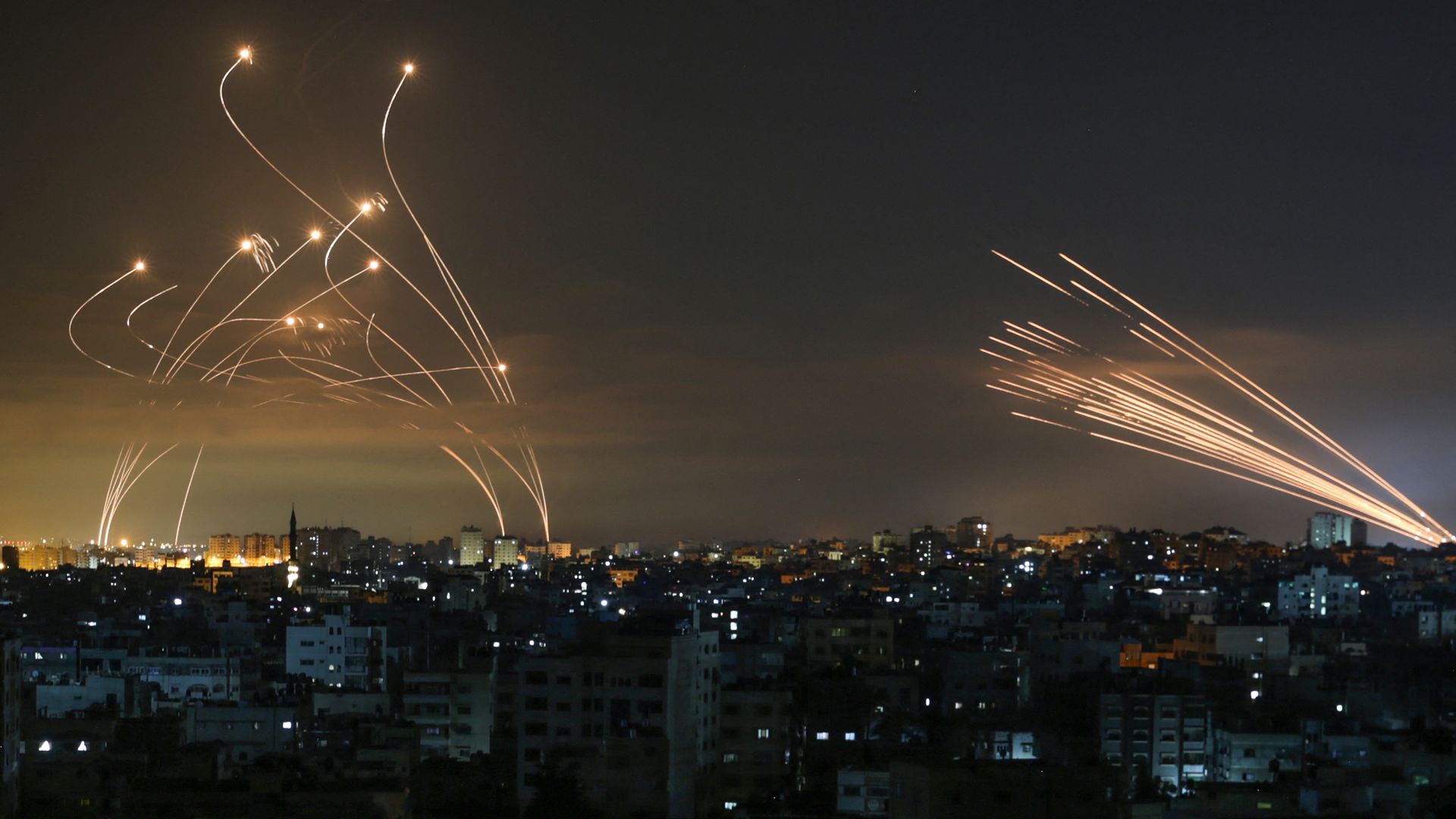
We shouldn’t be shy of telling some home truths each time the cycle of violence spins once more
Talking about ‘both sides’ of the Israel-Palestine issue makes us feel better. Every few years, the violence flares up again, like some hellish treadmill, rumbling forward to nowhere, each step another atrocity, another failure. Framing the situation as one in which ‘both sides’ are to blame and ‘both sides’ are victims gives us an emotional and intellectual distance from it.
We say that both the Israeli government and Hamas are behaving irresponsibly. And at home, we claim that both Muslims and Jews equally face discrimination as a result of the flames sparked overseas. But these are easy refrains, which carry just enough superficial truth in them to conceal how fundamentally false they are.
In reality, the Israeli government bears much of the moral responsibility for the current conflagration and the conditions which triggered it. It is the occupying power, pursuing a policy of oppression through checkpoints, discrimination, excessive use of force, illegal settlements and a refusal to properly engage in peace processes with more moderate actors like Fatah.
Gaza functions as an open-air prison, trapping around 1.85 million Palestinians in a tiny stretch of land, comprising the third densest polity in the world. Hamas, a murderous, fundamentalist, totalitarian Islamic terror group has been in control since 2006. Its election was an expression of despair by residents at the oppression they faced and the lack of progress under more moderate leaders. But since it took power, there are no more elections and the prospect of peace has become even less likely.
When it lashes out, as it invariably does, the Israeli government’s response sometimes kills civilians alongside the militants it is targeting. This is not collateral damage. It is the natural and predictable consequence of a policy the Israeli government is itself responsible for. And each time it happens, we see more of the same haunting imagery: dead children, women trapped underneath rubble, fathers killed in the street. It creates more traumatised Palestinians, driven by a hatred of Israel. And so the cycle continues, with no reason to ever expect an end to it, because nothing is done to alleviate the conditions which give rise to it.
It’s true, in a very superficial sense, to say that both the Israeli government and Hamas are responsible for what is happening. After all, the rockets fly in both directions. But there is no meaningful moral comparison between the actions of an occupation force and those of the people it occupies. The desperation of people left with no options is not the same as the choices of a powerful state which forced those restrictions upon them. The Israeli government created the conditions for the rise of extremists like Hamas and its tactics continue to fuel that fire.
At home, the talk of both sides is equally false. We claim that the burden of what happens in the Middle East lands evenly across British Jews and Muslims. But it does not. In reality, it is British Jews who are the chief domestic victims of the events that play out in the Middle East.
Once again, we can find the superficial reassurance of a ‘both sides’ narrative if we search for it. Last Sunday, four people were arrested after videos emerged on social media showing people shouting violent antisemitic slogans in north London. Meanwhile, Tory MP Michael Fabricant was branding pro-Palestinian demonstrators “primitives” in a quickly-deleted Twitter post. If you want, you can package together these examples and content yourself that blame and repercussion are shared in equal measure.
But that’s nonsense. And you can tell it’s a nonsense with one simple thought. How many times in your life have you seen Muslims in general blamed for the actions of Hamas? Rarely, possibly never. And how many times have you seen Jews in general blamed for the actions of the Israeli government? Often, and with alarming regularity.
This is racism. It treats each member of a group as identical to others in it. Individuality is erased in favour of homogenous culpability. One black man behaved violently, therefore we conclude all black men are violent. One Gypsy stole something, therefore all Gypsies are thieves.
British Jews know this process well. And they know how it metastasises into outright racist abuse. Once conflict erupts in the Middle East, they’ll receive anti-Semitic messages in their inbox, on social media, in the street. The violence that takes place thousands of miles away travels to the UK along the synapses of those who follow it, and is then translated into anti-Semitism.
This doesn’t necessarily mean that Jews face more discrimination than Muslims in general. There’s nothing to be gained by making broad comparisons of different forms of discrimination. When there is an Islamic terror attack, we see the same process play out in a different direction. Suddenly each Muslim is tainted by the actions of the worst of their number. But in the specific context of Israel-Palestine, the domestic burden does not fall equally on both sides. It falls predominantly on British Jews.
You can see hints of this in the disproportionate interest many people show in the conflict. Over 380,000 people have died in the ten years of Syria’s civil war, as president Bashar al-Assad’s murderous regime butchered its own people. Since 2014, the Chinese Communist Party has imprisoned more than one million Muslims in internment camps – the largest systematic detention of an ethnic and religious minority since the Holocaust.
And yet there is precious little coverage of these events. There are no thousands-strong marches in central London. People do not proudly fly the flag of other oppressed groups on their social media accounts, or outside their windows, or at football matches, as they do the Palestinian flag.
Some of this is explicable in a way that does not involve anti-Semitism. Israel is considered a modern liberal Western state, so when it commits war crimes it is thought shocking in a way that actions by the Syrian regime, for instance, are not. There is a shared global interest in the Holy Land because so many of the world’s religions are based on events which took place there.
Israel’s occupation is also notable for how explicit it is. When Russia invaded Ukraine, it went out of its way to conceal its actions in a cloak of post-truth tactics. In Israel, the occupation is completely out in the open – a vestigial instance of 19th century imperialism in a world which usually conducts such matters with more subtlety and deception.
But that does not fully explain the degree of attention and passion which the Israel-Palestine conflict entails. There is something disturbing about it, a unique and frenzied focus which can only be explained by the fact it involves the world’s sole Jewish state. We can deny this and we can justify ourselves if we like. But the state is unique and the reaction to its behaviour is also unique. There is plainly a sinister connection between those two facts.
Talk of ‘both sides’ has a seductive superficial logic to it, but it is fundamentally false. The Israeli government is chiefly responsible for what is happening in the Middle East. And at home, it is British Jews who are the chief victims of the political after-effects those actions create.
This situation demands more specificity from us. It requires the courage to pinpoint blame rather than retreat into the comforting falsity of a ‘both sides’ narrative. That is ultimately the only way to protect the victims of the violence, both in the Gaza Strip and at home in Britain.
What do you think? Have your say on this and more by emailing letters@theneweuropean.co.uk










